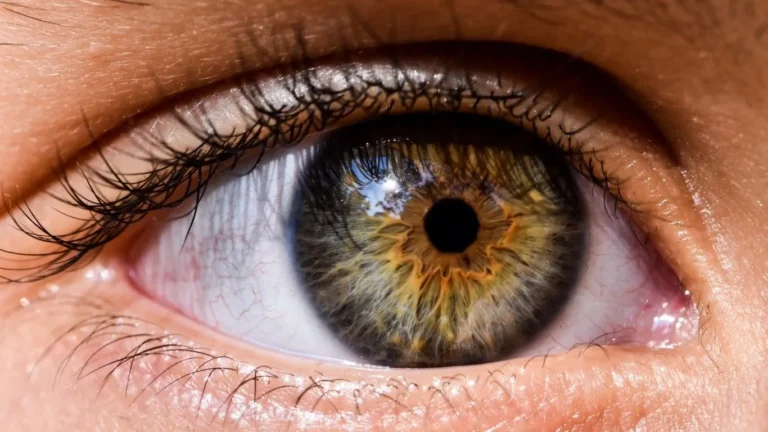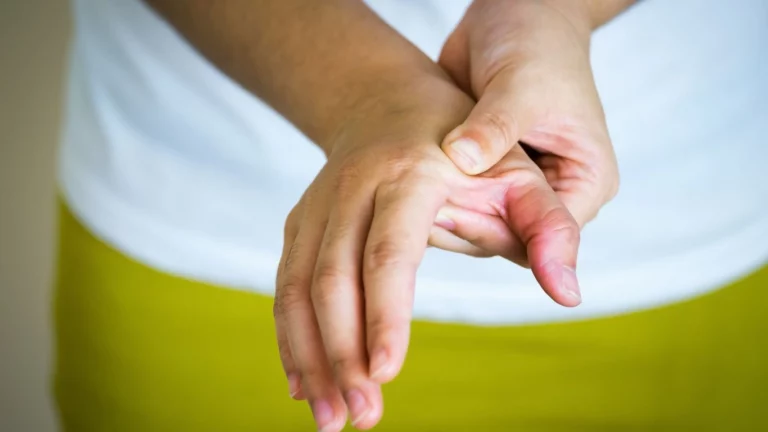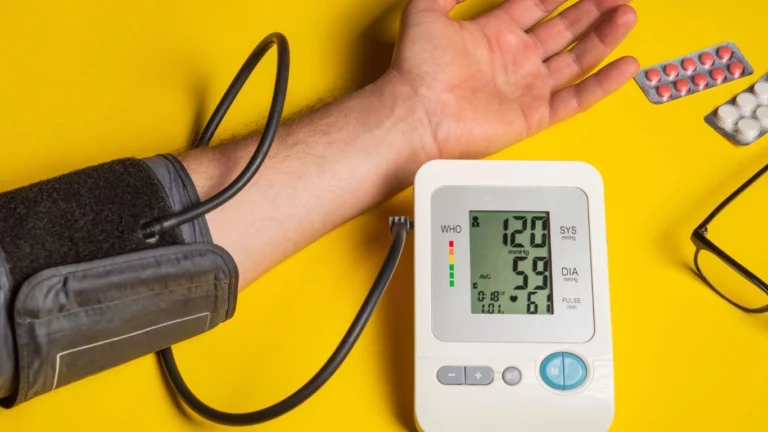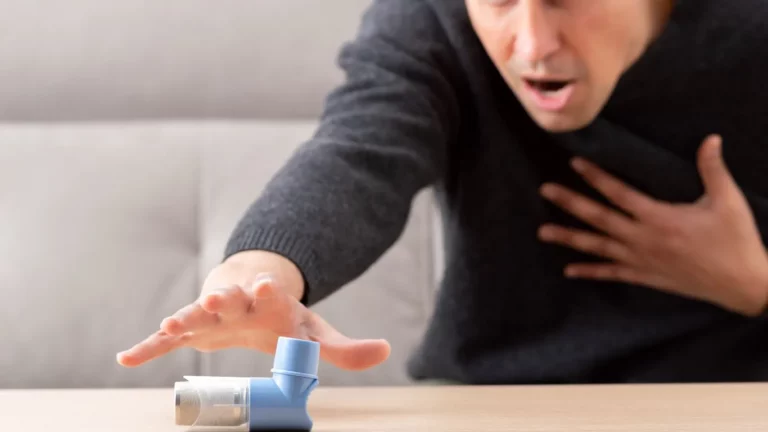Symptoms of GERD-Related Ulcers – What You Need to Know
Are you experiencing persistent stomach discomfort and suspect it might be linked to GERD? Understanding the symptoms of GERD-related ulcers is key to managing your digestive health and preventing further complications.
Gastroesophageal reflux disease (GERD) is a chronic condition where stomach acid frequently flows back into the esophagus, causing discomfort and irritation. Over time, GERD can lead to complications, including ulcers in the esophagus or stomach lining. These ulcers can cause pain and exacerbate GERD symptoms, making it crucial to recognize the warning signs early. In this article, we’ll explore the symptoms of GERD-related ulcers and how to manage them.
What is GERD and How Does it Relate to Ulcers?
Before diving into the specific symptoms, let’s quickly review what GERD is and how it can lead to ulcers. GERD occurs when the lower esophageal sphincter (LES), a valve at the bottom of the esophagus, doesn’t close properly, allowing stomach acid to flow back up. This acid can damage the lining of the esophagus and, in some cases, lead to the formation of ulcers.
A GERD-related ulcer, also known as an esophageal or gastric ulcer, is an open sore that forms on the lining of the stomach or esophagus. These ulcers develop as a result of the chronic exposure to stomach acid, leading to inflammation and eventual tissue damage.
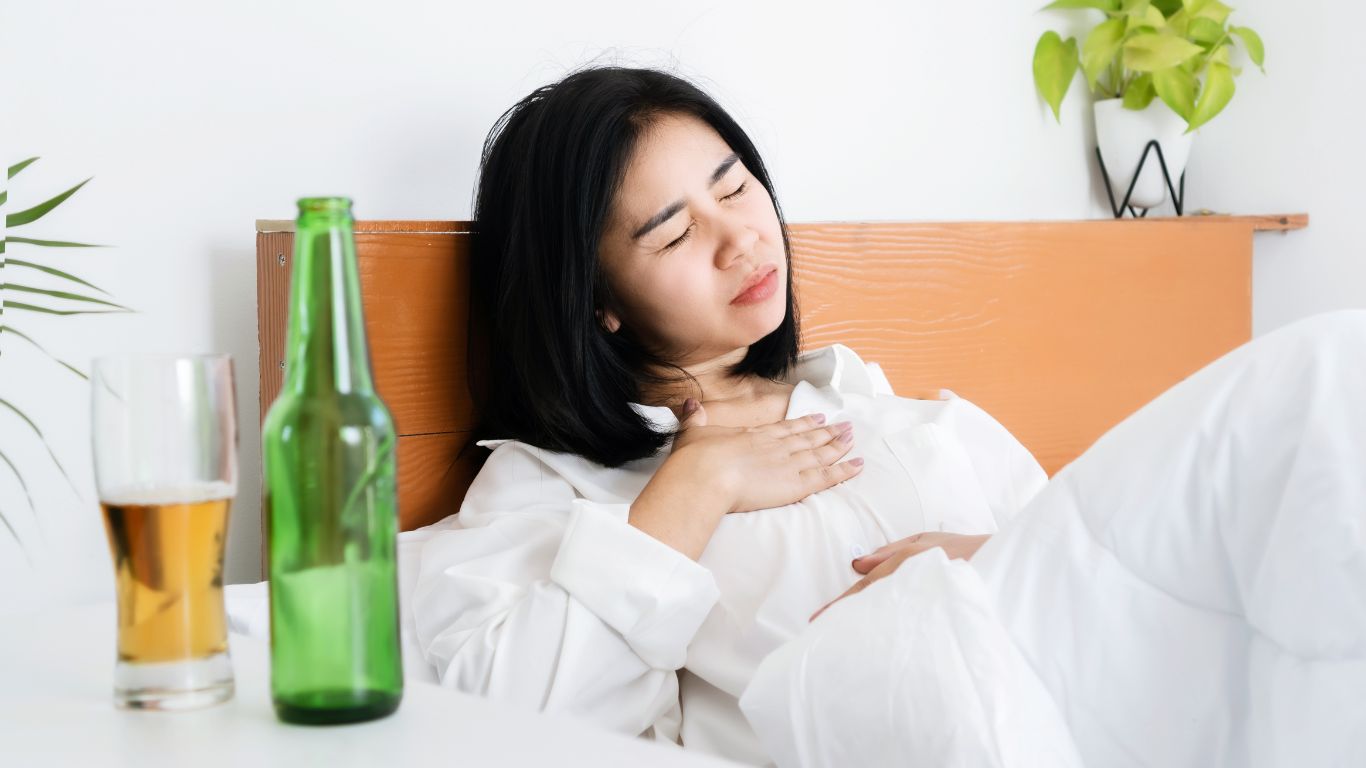
Common Symptoms of GERD-Related Ulcers
The symptoms of GERD-related ulcers can vary, but they typically share similarities with common GERD symptoms. If you’re dealing with ulcers caused by GERD, here’s what you might experience:
1. Heartburn or Acid Reflux
One of the hallmark symptoms of GERD is heartburn, a burning sensation in the chest that often occurs after eating or when lying down. If you have GERD-related ulcers, you may experience more frequent and intense heartburn. This discomfort can be exacerbated by the ulcers, as the stomach acid causes additional irritation to the already damaged lining of the esophagus or stomach.
2. Pain or Discomfort in the Stomach Area
GERD-related ulcers can cause a dull, gnawing pain in the stomach area, particularly when the stomach is empty. This pain may come and go, and can sometimes feel like bloating or indigestion. If you experience these symptoms along with acid reflux, it could indicate the presence of an ulcer.
3. Difficulty Swallowing (Dysphagia)
If an ulcer is located in the esophagus, it can cause swelling and narrowing of the esophagus, making it difficult to swallow food and liquids. You may feel like food is stuck in your throat or experience discomfort when swallowing. This condition, known as dysphagia, can be a sign that GERD-related ulcers are affecting your esophagus.
4. Nausea and Vomiting
Ulcers caused by GERD can lead to nausea and, in some cases, vomiting. The persistent irritation and damage to the stomach lining can interfere with normal digestion, causing discomfort and leading to nausea. If you’re vomiting blood or noticing that your vomit has a coffee ground-like appearance, this is a medical emergency and requires immediate attention.
5. Bloating and Belching
Many people with GERD and GERD-related ulcers experience bloating, which is the feeling of fullness or swelling in the abdomen. This can be accompanied by excessive burping or belching. The presence of an ulcer can interfere with digestion, leading to a feeling of discomfort in the stomach.
6. Unexplained Weight Loss
If you have GERD-related ulcers, you may notice unexplained weight loss. This can occur because the ulcers affect your ability to eat and digest food properly. In some cases, this can lead to a loss of appetite, which contributes to the weight loss.
7. Black or Tarry Stools
The presence of blood in your stools is a concerning symptom that may indicate an ulcer is bleeding. If the ulcer is located in the stomach or esophagus, it can cause internal bleeding, which may turn your stool black and tarry. This is a serious sign and warrants immediate medical attention.

Risk Factors for Developing GERD-Related Ulcers
Certain factors can increase the likelihood of developing ulcers in people with GERD. These include:
- Chronic acid reflux: Frequent acid reflux episodes can gradually damage the lining of the esophagus or stomach.
- Long-term use of certain medications: Nonsteroidal anti-inflammatory drugs (NSAIDs), aspirin, or other medications that irritate the stomach lining may contribute to ulcer formation.
- Infection with H. pylori: The Helicobacter pylori bacteria can infect the stomach lining and contribute to ulcer development.
- Excessive alcohol consumption: Drinking alcohol can irritate the digestive system, increasing the risk of ulcers.
- Smoking: Smoking can weaken the LES and contribute to GERD, which increases the risk of ulcers.
How GERD-Related Ulcers Are Diagnosed
If you suspect you have GERD-related ulcers, it’s essential to consult a healthcare provider. A doctor can diagnose ulcers through several methods, including:
- Endoscopy: A flexible tube with a camera is inserted through the mouth to examine the esophagus and stomach lining for ulcers.
- Barium swallow: A special liquid is ingested to highlight the esophagus and stomach in X-ray images, allowing the doctor to spot any ulcers or damage.
- Stool tests: If your doctor suspects bleeding, they may test your stool for the presence of blood.

Treatment for GERD-Related Ulcers
The treatment for GERD-related ulcers typically involves managing both the GERD and the ulcers. This may include:
- Proton pump inhibitors (PPIs): These medications reduce stomach acid production, allowing the ulcers to heal.
- H2 blockers: These drugs also reduce stomach acid, although they are less potent than PPIs.
- Antacids: Over-the-counter antacids can help neutralize stomach acid and provide relief from symptoms.
- Antibiotics: If you have an H. pylori infection, antibiotics may be prescribed to eliminate the bacteria and promote healing.
- Lifestyle changes: Avoiding trigger foods (spicy, acidic, or fatty foods), eating smaller meals, and not lying down after eating can help manage GERD symptoms and prevent ulcer flare-ups.
Prevention of GERD-Related Ulcers
Preventing GERD-related ulcers involves managing your GERD symptoms effectively. Here are some tips:
- Avoid trigger foods: Certain foods can worsen GERD symptoms, such as chocolate, caffeine, citrus, and fatty or spicy foods.
- Eat smaller, more frequent meals: Large meals can increase stomach acid production, exacerbating GERD symptoms.
- Elevate the head of your bed: Sleeping with your head elevated can prevent acid reflux while you sleep.
- Maintain a healthy weight: Being overweight can increase pressure on the stomach and worsen GERD symptoms.
- Quit smoking and reduce alcohol intake: Both smoking and alcohol can weaken the LES, increasing the likelihood of acid reflux.

Conclusion
GERD-related ulcers are a serious complication of GERD that can lead to discomfort, pain, and other digestive issues. Recognizing the symptoms early and seeking appropriate treatment is essential to prevent further damage and improve your quality of life. If you experience any of the symptoms listed above, consult a healthcare provider for diagnosis and treatment options.
Appendices
FAQs
- Can GERD cause stomach ulcers? Yes, chronic acid reflux from GERD can lead to the formation of ulcers in the stomach or esophagus due to the damage caused by stomach acid.
- How are GERD-related ulcers treated? Treatment typically includes medications to reduce stomach acid, such as proton pump inhibitors (PPIs), as well as lifestyle changes like avoiding trigger foods.
- What are the signs of an ulcer bleeding? Signs include vomiting blood, having black or tarry stools, and feeling faint or lightheaded. Seek medical help immediately if you notice these symptoms.
- Can lifestyle changes prevent GERD-related ulcers? Yes, lifestyle changes such as eating smaller meals, avoiding trigger foods, and quitting smoking can help prevent GERD and its complications, including ulcers.
- Are GERD-related ulcers dangerous? If left untreated, GERD-related ulcers can lead to complications such as bleeding or narrowing of the esophagus. It’s important to seek medical treatment early.
References
- American Gastroenterological Association. (2023). Gastroesophageal Reflux Disease (GERD) and Ulcers. Read Article
- National Institute of Diabetes and Digestive and Kidney Diseases. (2024). Understanding Ulcers and GERD. Read Article
- Smith, R., & Johnson, T. (2022). The Relationship Between GERD and Stomach Ulcers. Journal of Gastrointestinal Health, 40(3), 220-228. Read Article
Disclaimer:
The information provided in this article is for educational purposes only and should not be considered medical advice. Always consult a healthcare provider for diagnosis and treatment of GERD-related ulcers or any other medical conditions. Individual health needs may vary.

Camellia Wulansari is a dedicated Medical Assistant at a local clinic and a passionate health writer at Healthusias.com. With years of hands-on experience in patient care and a deep interest in preventive medicine, she bridges the gap between clinical knowledge and accessible health information. Camellia specializes in writing about digestive health, chronic conditions like GERD and hypertension, respiratory issues, and autoimmune diseases, aiming to empower readers with practical, easy-to-understand insights. When she’s not assisting patients or writing, you’ll find her enjoying quiet mornings with coffee and a medical journal in hand—or jamming to her favorite metal band, Lamb of God.



